Sudden cardiac arrest (SCA) is an electrical malfunction of the heart causing it to suddenly and unexpectedly stop beating. This cuts off blood flow to the brain and other vital organs. SCA is not the same as a heart attack, which is caused by a blockage preventing blood flow to the heart.
The only way to survive SCA is through immediate CPR to maintain some blood flow, along with rapid defibrillation using an automated external defibrillator (AED). For every minute without CPR and defibrillation, chances of survival decrease by up to 10%. Access to an AED and bystanders who know how to use it is absolutely crucial in those critical minutes before emergency services arrive.
Awareness

Yet public awareness and understanding of SCA remains low. Many wrongly assume it only affects the elderly or those with known heart conditions. But SCA claims thousands of lives in the UK every year. It can happen to anyone at any age, even young athletes. In fact, 12-15 young people die every week in the UK from undiagnosed heart conditions leading to SCA.
SCA survival rates also remain low, at less than 10%, because it often occurs with no warning signs and goes unwitnessed. Even when witnessed, bystanders may not intervene due to fear, not knowing what to do, or assuming someone else will help. Those in rural areas also face significantly longer emergency response times, reducing chances of survival.
Unlikely?
Perhaps we avoid thinking about SCA because it seems too frightening or unlikely?
Or maybe we assume that paramedics or doctors will always be on hand to help if the worst happens. But for every minute without CPR and defibrillation, chances of survival decrease by 10%.
Ambulances simply can’t arrive fast enough.
Early bystander intervention is crucial.
And the truth is, SCA can happen to anyone at any age.
Babies, teenagers, athletes in their prime, new mums… no one is immune. And it often happens with no warning signs. One minute a person is fine, the next they have collapsed, unconscious, pulseless, not breathing.
Those are the stark realities of SCA.
Immune?
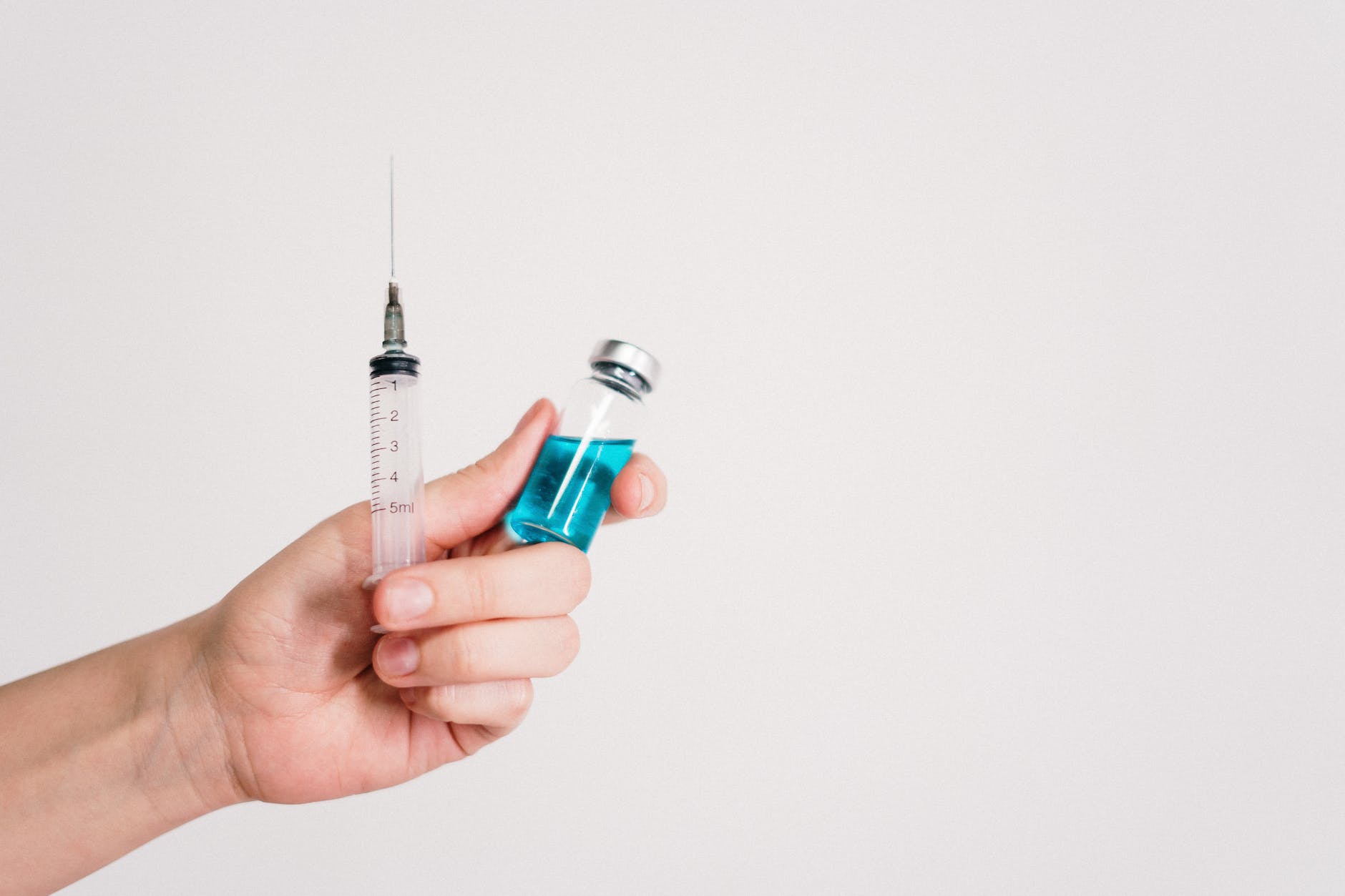
The collapse of Christian Eriksen at the Euro 2020 championships and Damar Hamlin the NFL player earlier this year, were stark reminders that even elite athletes are not immune to sudden cardiac arrest. Thanks to the quick response of medical staff, his life was saved on the pitch that day. Proper emergency planning and early bystander response is critical whether you are a footballer, a comedian, or an average person going about your day. We must be prepared to take action when it matters most.
Raising awareness in both rural and urban communities is key. We need the public to understand how to start the Chain of Survival – recognise SCA, call 999, begin hands-only CPR, and utilise publicly accessible AEDs. Widespread CPR and AED training will empower ordinary citizens to take action and help save lives.
Trauma
For SCA survivors, the trauma does not end after their initial collapse. Many face significant physical effects like fatigue, coordination/mobility issues, and cognitive difficulties. Emotionally, survivors often struggle with anxiety, depression, PTSD, and reduced quality of life after surviving a near-death experience.
Loved ones and witnesses are also deeply affected, experiencing anxiety, trauma, guilt, and PTSD from seeing someone die or nearly die in front of them. These “co-survivors” require support in coping and recovering from the trauma.
Yet currently no formal care pathway exists for SCA survivors and co-survivors within the NHS. They are often left to navigate the confusing health system alone without sufficient follow-up, mental health support, or cardiac rehabilitation tailored to SCA.
This is why we are supporting the Resuscitation Council UK’s “My Right To Recovery” petition to get the government to review post-discharge care for cardiac arrest survivors and co-survivors.
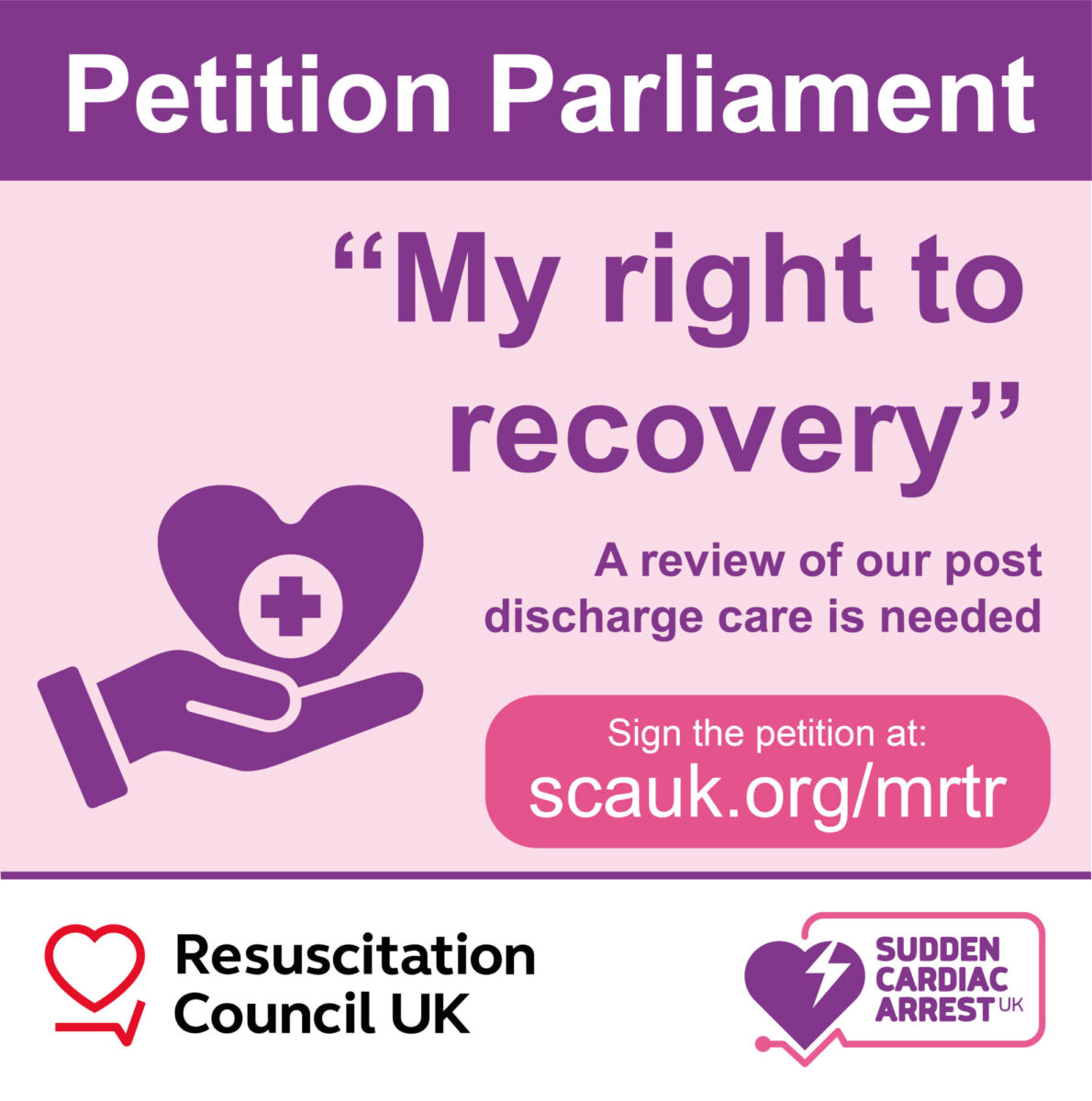
This lack of organised aftercare is unacceptable for survivors of such a traumatic medical event. We need trauma-informed care pathways within the NHS to help survivors and co-survivors heal physically and mentally following sudden cardiac arrest. This includes:
- Access to counselling and mental health services
- Cardiac rehab programs designed for ALL SCA patients
- Support groups to connect with other survivors and co-survivors
- Guidance on returning to work, driving and normal activity
- Ongoing support and care coordinated by trained staff
With prompt bystander CPR and AED use, as well as compassionate aftercare, many more lives could be saved from this devastating condition.
Learn CPR
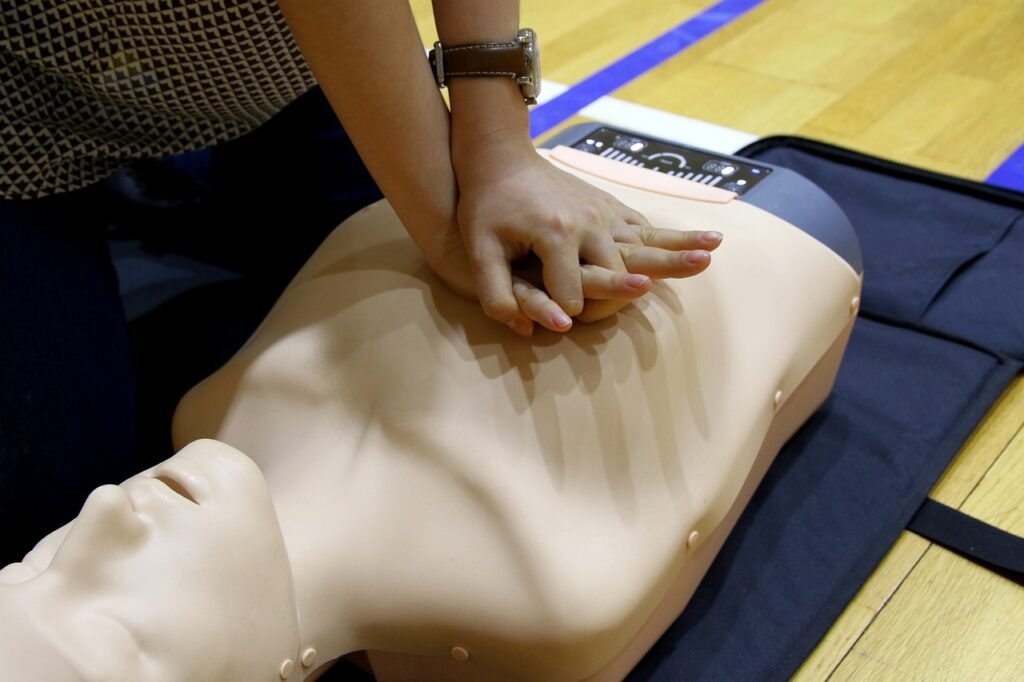
As scary as SCA is, simple steps can make a huge difference. Learn CPR – it’s easier than you think. Support charities installing defibrillators in public places. Talk to your school or workplace about proper SCA emergency planning. Advocate for more widespread CPR and defibrillator training.
In Wales, England and Scotland, it is already mandatory for school pupils to be taught CPR. Northern Ireland has announced plans to follow suit. This is an important step forward. Yet we should not be complacent – there is more progress to be made. The UK still lags behind many European countries when it comes to public knowledge of CPR and access to defibrillators. Campaigns are underway to remove VAT on public access defibrillators to make them more affordable. But we need wider availability, along with proper maintenance and registration of these life-saving devices. The Circuit, a national database for registered AEDs, is helping to map and track public access defibrillators across the UK with the Defib Finder. However, continued advocacy and public pressure are key to drive change. Write to your MP demanding they support efforts to improve defibrillator access and CPR education across all communities. With focused effort, we can strengthen the critical chain of survival when SCA strikes.
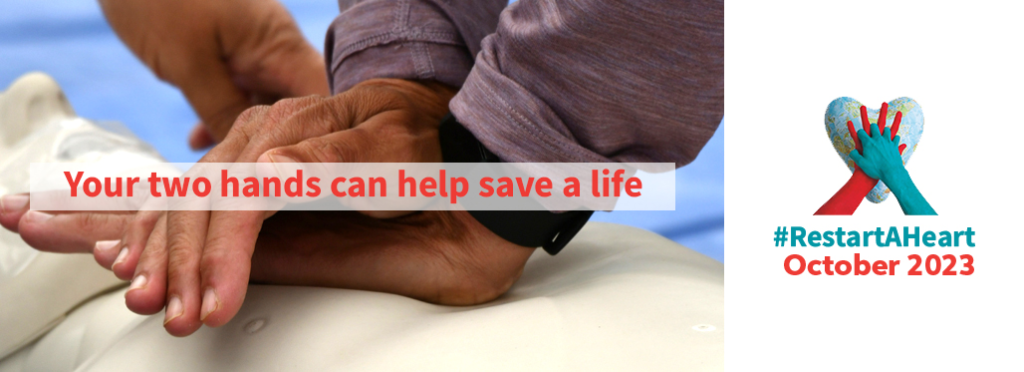
Don’t wait for tragedy to strike before taking action. This October, get informed, get trained, and help spread the word about this silent killer. Visit the Restart a Heart Day page to learn more and get involved. Together, we can create a “chain of survival” so that more lives are not needlessly lost when SCA strikes.
Survive and Thrive
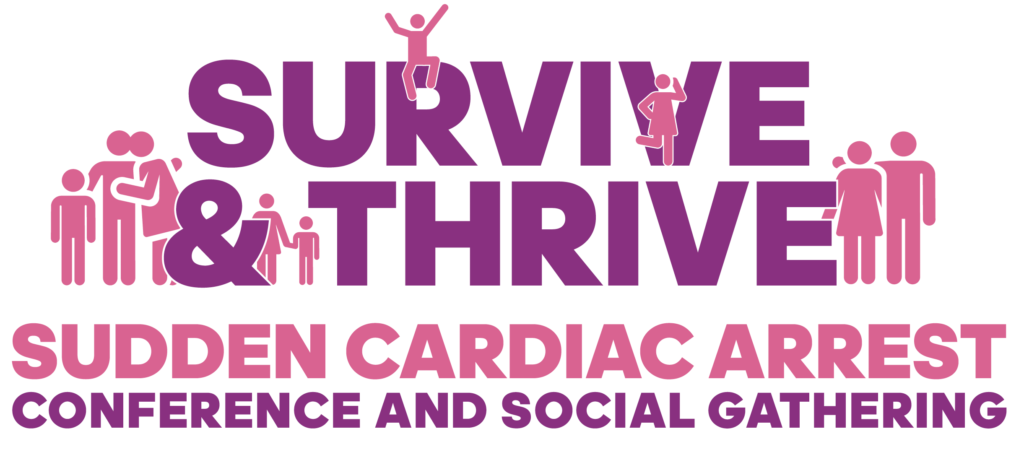
Join us in taking action, whether it’s learning CPR, asking your community to install AEDs, sharing our resources, or pressuring NHS leaders to establish care pathways. Together, we can build a society that is both empowered to act in an emergency and supportive of the recovery journey for those affected by a sudden cardiac arrest.
If you are a cardiac arrest survivor or co-survivor don’t forget there is still the chance to grab tickets for the event of the year, our Survive and Thrive conference on Saturday, 18th of November at the Staverton Park Hotel, Daventry. We hope to see you there!

After our first meet-up in February 2015, I realised I was not alone. It was the first time since my cardiac arrest the previous year that I had spoken face-to-face with someone who had experienced what I had. This was also true for my wife, who also happened to be my lifesaver. From that meet-up, the idea of SCA UK was born. Since then, we have achieved a considerable amount, primarily providing information, resources and support to others in a similar situation but also raising the profile of survivorship and the need for better post-discharge care. We are starting to get traction in this, and with the formation of the charity, I genuinely believe we have a bright future ahead and will make a significant difference in the lives of many who join our ranks.

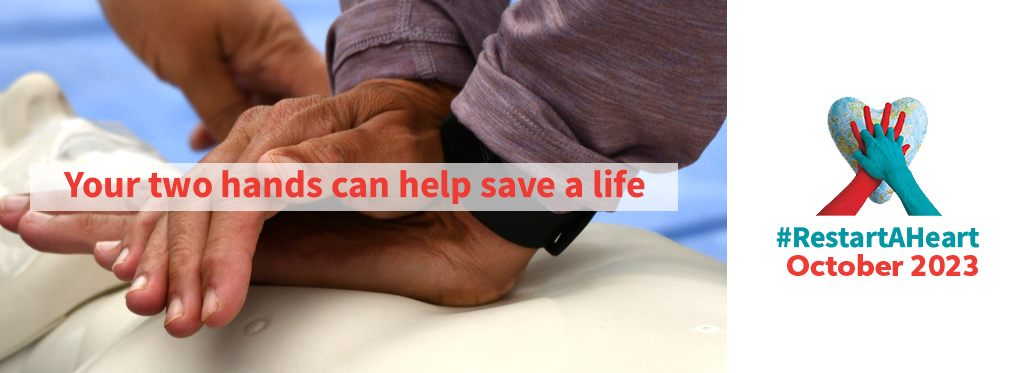
Loving the irony of the month chosen for Sudden Cardiac Arrest awareness, I turn 3 years on 21st October 2023!
Signed petition and shared to Facebook, hopefully you’ll get the 100k, and debate can be had at last.
So many of us are so thankful to you Paul for all you have done and continue to do. I know my recovery post-SCA may not have been possible because I was in such a dark place. I am so excited about the conference in November and hope to meet you and your wife, as well as many others. Thank you!